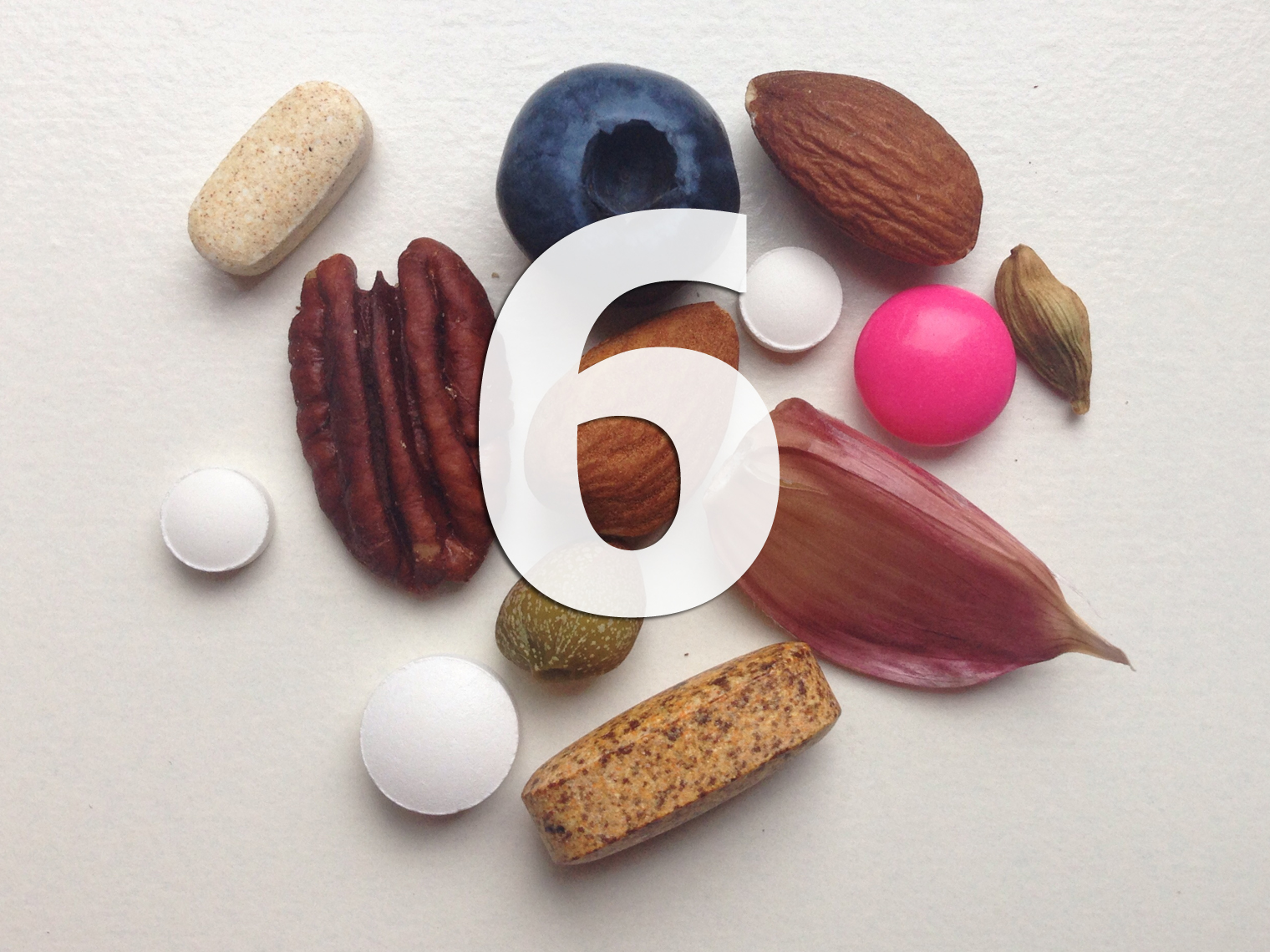Get Easy Health Digest™ in your inbox and don’t miss a thing when you subscribe today. Plus, get the free bonus report, Mother Nature’s Tips, Tricks and Remedies for Cholesterol, Blood Pressure & Blood Sugar as my way of saying welcome to the community!
6 nutraceuticals to combat your digestive troubles

Whether it’s constipation or more troublesome and serious conditions such as gastric ulceration, inflammatory bowel disease, and even colorectal cancer — many of us will struggle with gastrointestinal illnesses (GI) at some point in our lifetime.
Since our modern diets don’t exactly support healthy digestive function, GI issues are occurring more than ever, across all age groups. Colorectal cancers, once consider a disease of older adults, is increasingly striking more people under 50.
Medications do exist to treat various issues, but they often come with the risk of nasty side effects such as nausea, headache, fatigue, hair loss and skin rashes. Not to mention they can lead to the development of more serious health conditions such as cataracts or osteoporosis. Yes, all from GI medications!
The good news is, while medications may be needed in some cases, there’s not always a need to take drugs that put unnecessary stress on your body.
Instead, nutraceuticals can be used to combat your digestive troubles. Nutraceuticals are beneficial dietary compounds found in a wide variety of healthy foods.
In fact, you may already be eating many of the most beneficial nutraceuticals available…
1. Catechins
Studies have shown that medical treatments for colorectal cancer are 38 times more effective when combined with the powerful benefits of catechins. These nutraceuticals are readily available in green tea and rooibus tea, so aim to drink a few cups each day to get your daily catechin dose.
2. Curcuminoids
Curcuminoids, found in the yellow spice turmeric, are anti-inflammatory and are known as an effective treatment for inflammatory bowel conditions. As a result of these anti-inflammatory properties, studies suggest that they can also play a role in preventing colon cancer.
To get your daily dose of curcuminoids, add a teaspoon of turmeric to your daily diet by incorporating it into curries or you can even stir it into a glass of warm milk or green tea. Consumption in your diet on a regular basis will have a cumulative effect, but turmeric does have limited bioavailability. However, you can optimize its cancer-fighting powers. For best results, curcumin (containing 95% curcuminoids) supplementation is recommended.
3. Anthocyanins
Anthocyanins are dietary flavonoids found in darkly pigmented fruit and vegetables like eggplant, blueberries, strawberries and red wine. Their strong anti-inflammatory capabilities have a beneficial effect on gut bacteria, which improves overall GI health.
Aim for at least one serving of anthocyanin-laden produce per day — think a quarter-to-half a cup of blueberries or strawberries as your morning or afternoon snack.
4. Prebiotics and probiotics
Probiotics can work wonders on all types of digestive troubles, as they help to increase the beneficial bacteria in your gut and at the same time get rid of harmful pathogens.
Prebiotics can be thought of as a cheerleader for probiotics. They promote probiotic growth in the gut and can significantly improve symptoms associated with colitis, along with being beneficial for all types of GI issues.
Both pre- and probiotics also have incredibly potent anti-inflammatory properties. Since many digestive issues are inflammatory in nature, these properties are particularly beneficial.
Probiotics can be found in fermented foods such as yogurt and sauerkraut — aim for at least one serving a day.
Prebiotics are found in foods that you probably eat already, such as asparagus, onions and garlic.
Try to get both pre- and probiotics into your daily diet for best results.
5. Phytosterols
Phytosterols are a family of molecules related to cholesterol, found in many types of fruits and vegetables. They’ve been shown to improve symptoms of colitis, and their anti-inflammatory properties have a direct impact on proinflammatory cells in the digestive tract, along with protecting the lining of the colon.
No matter what digestive issues plague you, getting your daily dose of phytosterols is another good reason to consume your five to nine servings of fruits and veggies each day.
6. Vitamins A & D
These two fat-soluble vitamins can effectively treat a whole variety of digestive troubles.
For instance, people with irritable bowel disease have been found to have low levels of vitamin D, and sufferers of Crohn’s disease who have sufficient levels of vitamin D are hospitalized far less than those who don’t.
Vitamin D can be obtained through canned pink salmon, canned mackerel or sardines, dairy products, mushrooms and egg yolks.
However, 15-30 minutes of sunlight exposure each day is the best way to get your daily vitamin D dose. Some things can rob your vitamin D from you — so be aware of them.
Vitamin A has been shown to reduce risk of colitis and colon cancer by preventing the colon lining from becoming inflamed. Animal food sources rich in readily-available vitamin A as retinol include dairy products, fortified cereal, liver and fish oils. Vegetable sources of carotenoids, or pre-vitamin A which converts in your body, include tomatoes, carrots and leafy green vegetables.
Editor’s note: Did you know that when you take your body from acid to alkaline you can boost your energy, lose weight, soothe digestion, avoid illness and achieve wellness? Click here to discover The Alkaline Secret to Ultimate Vitality and revive your life today!
Sources:
-
Morais CA, et al. Anthocyanins as inflammatory modulators and the role of the gut microbiota. — Journal of Nutritional Biochemistry. 2016;33:1-7.
-
Yang N, et al. Recent advances in complementary and replacement therapy with nutraceuticals in combating gastrointestinal illnesses. — Clinical Nutrition; advance online publication. 2016.














